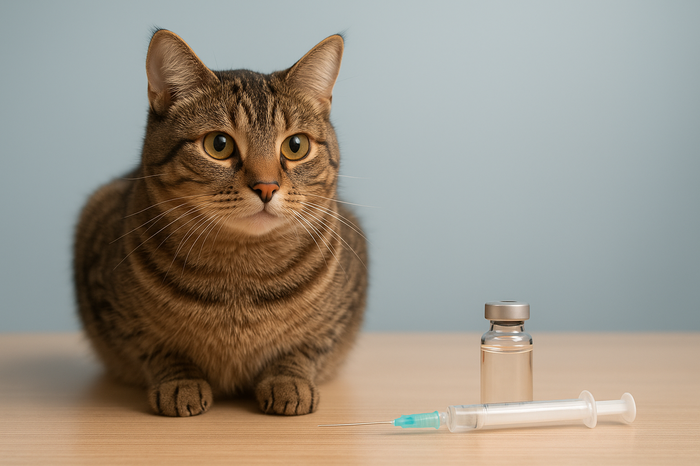Must-Know Vaccines for Cats: Keeping Your Feline Friend Safe
As devoted cat owners, we often think of toys, cozy beds, and gourmet treats—but one of the most important gifts we can give our cat is protection against serious disease. Vaccinations are the cornerstone of preventive care, helping to keep your cat healthy and safe for years to come.
At Animal hospital of Aurora, we want every cat to thrive, so here’s what you need to know about the key vaccines your cat should receive.
Why Vaccinate?
-
Prevention is more powerful than cure. Many viral diseases in cats are serious, often incurable, or carry long-term complications.
-
Protect your community (and yourself). Some cat diseases — such as rabies — can infect humans, making vaccination a public health measure, not just a pet health measure.
-
Reduce overall cost and stress. Treating a disease is almost always more expensive, invasive, and stressful than vaccinating ahead of time.
-
Promote longevity and quality of life. A well-protected cat lives with fewer interruptions to their health and fewer vet emergencies.
Core Vaccines for Cats: What Every Cat Should Get
Below are five critical vaccines recommended for most cats. Your veterinarian will decide the right schedule and combination based on your cat’s lifestyle, age, and risk factors.
| Vaccine | Purpose | Why It’s Important |
|---|---|---|
| Rabies | Defends against the rabies virus | Rabies is fatal in animals and humans; vaccination is often legally required. |
| Feline Herpes Virus (FHV-1) | Prevents upper respiratory infections | FHV-1 is a common cause of sneezing, eye/nose discharge, and sores. |
| Feline Calicivirus (FCV) | Protects against another respiratory virus | Calicivirus can cause mouth ulcers, respiratory distress, and chronic disease. |
| Panleukopenia Virus (FPV) | Prevents feline distemper (panleukopenia) | Highly contagious and often deadly, especially in kittens. |
| Feline Leukemia Virus (FeLV) | Protects against FeLV infection | FeLV weakens immunity, can lead to cancers and severe long-term disease. |
A Closer Look at Each Vaccine
Rabies
Rabies is perhaps the most critical vaccination because of its zoonotic (animal-to-human) potential. Once symptoms appear, it’s almost always fatal. In many regions, rabies vaccination is required by law for all cats.
Feline Herpes Virus (FHV-1)
Also called feline viral rhinotracheitis, FHV-1 causes upper respiratory issues, eye inflammation, and sometimes lifelong latent infections that flare up periodically.
Feline Calicivirus (FCV)
FCV often works alongside FHV-1 to trigger “cat flu.” Some strains can be highly virulent, causing systemic disease, tongue ulcers, and joint pain.
Panleukopenia Virus (FPV)
Also known as feline distemper, panleukopenia is extremely contagious and can cause intestinal damage, immunosuppression, dehydration, and often death — especially in kittens with an immature immune system.
Feline Leukemia Virus (FeLV)
FeLV is spread through close contact (grooming, shared food dishes, bite wounds). Cats who test positive can remain carriers and spread the disease. Vaccinating helps prevent new infections and reduce the overall prevalence in the cat population.
Vaccination Schedule & Best Practices
While the schedule can vary depending on region, risk, and the vaccine brand, here’s a general guideline:
-
Kittens
-
Start core vaccines at 6–8 weeks of age
-
Boost every 3–4 weeks until about 16 weeks old
-
Administer FeLV starting at ~8–12 weeks, with a booster 3–4 weeks later
-
-
Adults
-
Annual or triennial booster (depending on the vaccine and your cat’s risk)
-
Rabies boosters usually every 1 or 3 years, per local law
-
-
Risk-Based Adjustments
-
Outdoor cats, multi-cat households, or cats traveling may need more frequent or additional vaccines
-
Indoor-only cats in low-risk areas might be eligible for fewer boosters, but this should always be decided by your veterinarian
-
-
Health Before Vaccination
-
Always ensure your cat is healthy at the time of vaccination
-
If your cat is ill, immunocompromised, or pregnant, your vet may adjust timing or choose alternative protocols
-
Safety & Side Effects
Most cats tolerate vaccines very well. Mild reactions can include:
-
Slight lethargy
-
Mild fever
-
Local soreness or swelling at the injection site
-
Reduced appetite for a day or two
Severe reactions (such as anaphylaxis) are rare. Always monitor your cat for 15–30 minutes after vaccination, especially in early visits, and contact your vet immediately if you notice:
-
Persistent vomiting or diarrhea
-
Swelling around the face or difficulty breathing
-
Collapse or fainting
Myths & Misconceptions
-
“My cat never goes outside, so it doesn’t need vaccines.”
Indoor cats still can be exposed via unexpected escape, visits by stray cats, or people bringing pathogens home. -
“Too many vaccines will overwhelm the immune system.”
Modern vaccines are designed to be safe and effective, and the number of antigens is relatively small compared to what cats naturally encounter daily. -
“Once vaccinated, always protected forever.”
Immunity can wane over time. That’s why boosters are essential — they remind the immune system and maintain protection.
Why Choose Animal hospital of Aurora for Your Cat’s Vaccinations?
-
We tailor vaccine protocols to your cat’s individual risk profile
-
We follow the latest veterinary guidelines for safety and efficacy
-
We’re committed to educating pet owners so you understand why each vaccine matters
-
If your cat ever has a vaccine reaction or special health needs, we provide careful monitoring and customized plans
Final Thoughts
Vaccination is one of the most effective ways you can protect your cat’s long-term health. The core vaccines — rabies, FHV-1, FCV, FPV, and FeLV — form the foundation of feline preventive care. Talk with your veterinarian at Animal hospital of Aurora to develop the right vaccination plan for your cat. With the right schedule, vigilance, and support, you can help your cat live a healthier, happier life — free from preventable disease.



